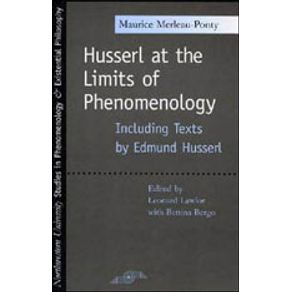Combining Maurice Merleau-Ponty's course notes on Husserl's Origin of Geometry, his "Course Summary," related texts, and critical essays by each of the co-translators, this collection provides a unique and welcome glimpse both into Merleau-Ponty's nuanced reading of Husserl's famed late writings and into his persistent effort to track the very genesis of truth through the incarnate idealization of language. In his notes, Merleau-Ponty focuses primarily on Husserl's well-known "Origin of Geometry" text from the Crisis and on another of his posthumous texts on the phenomenological role of the Earth as Earth-ground. Both of these essays lead to what Merleau-Ponty called in a working note a "transcendental history"-an analysis of a geographical inscription of history. Likewise, Merleau-Ponty is concerned in these notes with the philosophical and ontological implications of the origin of idealization, the passage from passivity to activity, the interrelation between perception and rationality--or the intertwining of nature and logos. Because of the central role these themes played in Merleau-Ponty's thought, this volume provides an important supplement to Merleau-Ponty's philosophy and his relation to Husserl for the English-speaking reader. With the translators' essays connecting Merleau-Ponty to Derrida and Levinas as well as to Husserl, the volume should become a valuable sourcebook, an indispensable stopping point on a scholar's journey into the thought of Husserl, Merleau-Ponty, Derrida, and Levinas.


